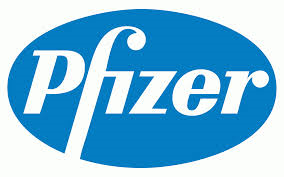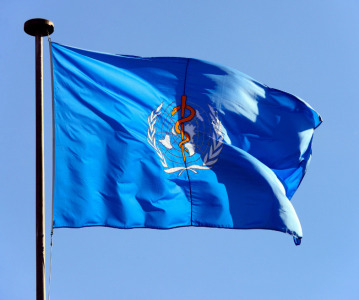Prevnar 13 Now Approved in Canada for the Prevention of Vaccine-Type Pneumococcal Pneumonia in Adults Aged 18 Years and Older

Prevnar 13 (pneumococcal 13-valent conjugate vaccine) has received Health Canada's approval for active immunization of adults 18 years of age and older for the prevention of pneumonia caused by Streptococcus pneumoniae serotypes 1, 3, 4, 5, 6A, 6B, 7F, 9V, 14, 18C, 19A, 19F and 23F.
"Pneumococcal pneumonia is a leading cause of hospitalization and can pose a serious health risk - particularly to older adults and those who are vulnerable to this infection," says Dr Vivien Brown, Family Physician, University of Toronto, and Board Member of Immunize Canada. "The approval of this new indication for Prevnar 13 in Canada is great news for adults seeking added protection from this debilitating and potentially deadly disease."
Health Canada's approval of Prevnar 13's expanded indication is based on Pfizer's Community-Acquired Pneumonia Immunization Trial in Adults (CAPiTA), which evaluated the efficacy of immunization with Prevnar 13 to prevent a first episode of vaccine-type pneumococcal community-acquired pneumonia (CAP) in adults aged 65 and older.
Streptococcus pneumoniae, also known as pneumococcus, is the most common bacterial cause of community-acquired pneumonia, and a major cause of illness and death worldwide. Pneumococcal pneumonia is considered non-invasive when bacteria cause infection in the lungs but are not detected in the blood concurrently, or invasive when bacteria also enter the bloodstream or another normally sterile site in the body. For every one case of invasive pneumococcal pneumonia in adults, there are an estimated three cases of non-invasive pneumococcal pneumonia. While non-invasive pneumococcal disease is more common, the invasive form is typically more severe.
Related News
-
News Pharmaceutical industry supports COP28 health stance in joint statement
As COP28 takes place over this week in Dubai, UAE, several bodies in the pharmaceutical and health industries have come together to announce support of key movements in sustainability in the sector, and to recognise sustainability as a health issue.&nb... -
News Biden backs Cold-War measures to shore-up medical supply chains
In a recent strategy to combat rising inflation and the cost of living crisis, President Joe Biden has invoked a Cold War-era act to increase investment in a selection of medicines and supplies. -
News CPHI Podcast Series: What does the changing US Pharma market mean for industry and patients alike?
In this week's episode of the CPHI Podcast Series Lucy Chard, Digital Editor for CPHI Online is joined by James Manser to discuss the political and market changes in the US pharma field. -
News Which 10 drugs are open to price negotiation with Medicare in the USA?
The Centres for Medicare & Medicaid Services, under the Biden administration in the USA, has released a list of the 10 drugs that will be open to price negotiations as part of the new legislation under the Inflation Reduction Act (IRA). -
News 10 Major Drug Approvals So Far in 2023
Last year, 37 novel drugs were approved by the FDA, this was a high number for such a category, and covered many fields including oncology, demonstrating how promising further research is, and how it is only continuing to build. To date, there are alre... -
News Novartis agrees for copies to be made of cancer drug to reach poorer countries
Novartis signs agreement with MPP to have generics of it's leukemia drug made so that it can be more easily distributed to the world's poorer countries. -
News CPHI Podcast Series: outsourcing and manufacturing trends
Listen to the CPHI Podcast Series this June to hear Gil Roth of the PBOA speak with Digital Editor Lucy Chard about the biggest trends and topics to watch in pharma outsourcing and manufacturing at the minute. -
News New WHO health emergency guidelines expect full transparency from Big Pharma
The WHO are proposing a new set of pandemic guidelines to set out how future global health crises should be handled.
Position your company at the heart of the global Pharma industry with a CPHI Online membership
-
Your products and solutions visible to thousands of visitors within the largest Pharma marketplace
-
Generate high-quality, engaged leads for your business, all year round
-
Promote your business as the industry’s thought-leader by hosting your reports, brochures and videos within your profile
-
Your company’s profile boosted at all participating CPHI events
-
An easy-to-use platform with a detailed dashboard showing your leads and performance







